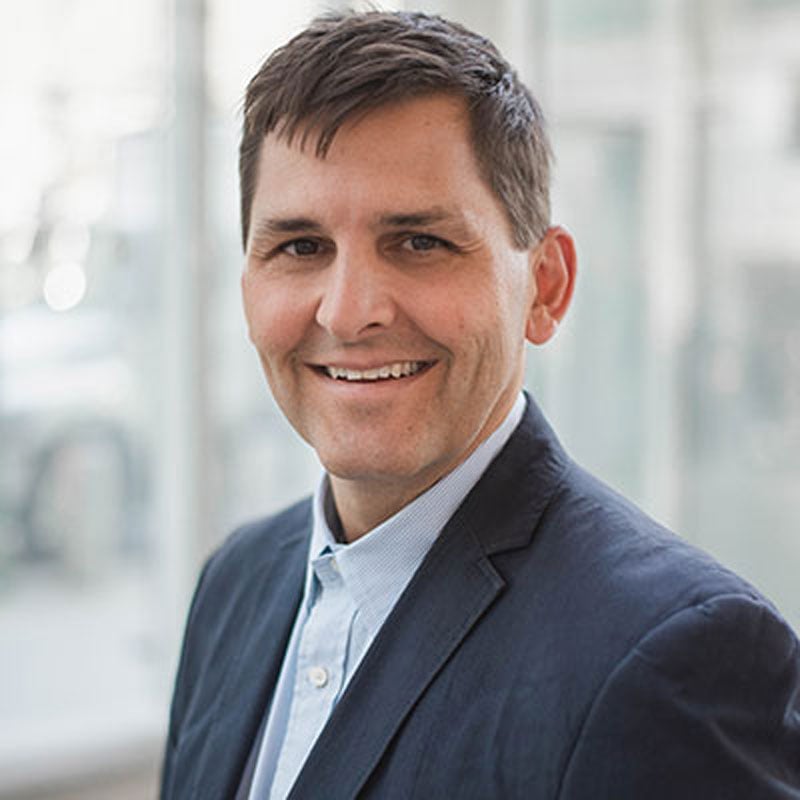When Stuart Ruderfer and David Cohn moved Civic Entertainment Group into a former sweatshop in Manhattan’s garment district, there were electrical outlets hanging from the ceiling in rows for sewing machines.
The outlets are gone, but the energy is still there in breakthrough work like The History Channel’s historic White House partnership and the CNN Diner, hotspot of the 2004 Republican National Convention.
This quintessential New York agency has flourished on city smarts, carving a niche as the first agency to specialize in municipal marketing — “promotions with a public spirit.” Civic leverages the political and promotional acumen that co-CEOs Ruderfer and Cohn have honed since they founded New York City’s Marketing & Special Events division in 1994. Last December, Civic cut a landmark $19.5 million deal between New York City and The History Channel for a heritage tourism push launching this summer. It’s also brokering partnerships for the City of Philadelphia, New York’s Metropolitan Transit Authority and Chicago Public Schools’ athletics program (the latter two with Octagon); Civic starts approaching marketers by early fall for all three.
The six-year-old agency is small — less than $3.2 million in 2004 net revenues — but its reputation is growing fast. Last year, Civic won accolades for The History Channel’s Save Our History landmark restoration project (including the 2004 PRO Award for Best Concept, a 2005 EMMA for Best Cable TV campaign and the PMA’s 2004 Super Reggie). Civic’s CNN Diner near Madison Square Garden served 4,000 guests during the Repuplican National Convention and earned high marks for its buzz (and vanilla milkshakes) from political luminaries including White House Communications Director Dan Bartlett. Those two campaigns, and a joint promotion for Showtime and retailer FYE, put Civic’s campaign work at the top of the PROMO 100 this year (see chart on p. 41).
“The marketing environment has changed drastically in a very short time. Our space — the dual disciplines of civic marketing and branded entertainment — is increasingly important to big marketers as they look to create an emotional connection with consumers, employees, shareholders,” Ruderfer says. Meanwhile, “government at all levels is strapped. So government can be progressive and inventive by reaching out to corporations to improve their facilities and services.”
On the other side of the table, “the responsibility of government agencies is to provide programs to generate revenue not to make a profit, but to keep programming going, and improve it,” Cohn says. “So the money [from corporate partners] is recycled.”
“Government has some of the largest venues to bring people together,” Ruderfer continues. “A concert in Central Park or a group preserving a totem pole in Alaska makes that town feel like a community. Companies can help government agencies fill that role.”
Bringing marketing to government has its hurdles. White House lawyers went over every piece of Save Our History with a fine-tooth comb to prevent Mrs. Bush from inadvertently endorsing a brand; New York’s tourism kiosk sponsored by The History Channel opens next month, instead of May. Civic guides marketers through the bureaucracy — and calms them down when the wheels move slowly.
“Stuart can make government work in decades, not centuries,” says The History Channel Executive VP-marketing Mike Mohamad. “Putting our timetable alongside a government timetable is like taking a train or a donkey up to 72nd Street — which one will get there faster? I look to Stuart to help me maneuver through government.”
In the past year, Civic has also brokered History Channel deals with Loews Theaters and HBO and is negotiating with Expedia.com for a heritage tourism Web site. “Stuart is masterful at getting both sides to agree without the bravado that usually gets in the way of integrated marketing,” Mohamad says.
It was Civic that convinced Southwest Airlines to let A&E film its operations for the documentary series Airline, now in its third season. Civic pitched Director of Public Relations Linda Rutherford, who promptly threw the deck in the trash. An impassioned voicemail from Civic’s project manager persuaded her to reconsider. Civic pitched all the major airlines, but “we had our heart set on Southwest, because they had the right personality for this,” Cohn says.
It’s unusual for a cable network’s marketing agency to assist with programming, but “they have so many relationships with companies that it’s a great extension, especially since everyone is interested in branded entertainment,” says Stacy Krusch, A&E’s director of strategic alliances and consumer promotions.
Civic ran A&E’s 10-city tour for Biography‘s 15th anniversary, and is negotiating now to host a stunt in Bryant Park for a new A&E show. “They can get to the right people with just a phone call,” Krusch says.
Sony Pictures asked Civic to explore ways to market its upcoming film Memoirs of a Geisha via art museums. “They put me in front of the right people,” says Executive VP-consumer marketing George Leon. Civic is too highbrow for most Hollywood properties — and in the end, Sony opted for a more mainstream retail partner for Memoirs — but Leon remains impressed with Civic’s finesse.
“If we can give advice to clients that builds their brands long-term and creates an immediate bump in sales, that’s what being in business is all about,” Ruderfer says. “That’s why promotion has gained momentum the last few years, because it’s the discipline capable of straddling those two objectives.”
Nearly 70% of Civic’s business comes from three clients: The History Channel, MBNA and A&E Networks. Its client list is heavy on cable companies (Showtime, HBO, Cinemax, TNT) — credit word-of-mouth between networks — but 2004 wins brought in MBNA, the New York City Library, Sony Pictures, Loews and a project from Grey Global Group’s G2 division.
Civic won its biggest account, MBNA, late last year. MBNA is the first bank to issue American Express cards (with an exclusive deal through yearend); it’s also the biggest affinity marketer among banks, with 5,000-plus partners. Civic will help MBNA launch the AAA American Express card later this summer, targeting 45 million AAA members, and is planning events that leverage MBNA’s affinity-card relationships to extend its “If you’re into it, we’re into it” ad campaign that broke in January. The shop already has given MBNA’s top affinity partners a taste of AmEx luxe with “City’s Best” events in key markets, hosting tastings with upscale restaurants (Charlie Trotter’s in Chicago, the Senate Dining Room in Washington, DC).
And there’s the 2004 work you haven’t heard much about. HBO partnered with 12 veterans organizations to ask local chapter members to watch its Last Letters Home documentary about fallen soldiers in Afghanistan and Iraq. Civic distributed DVDs and a book of featured letters and photos from the documentary to 12 million veterans.
Soldiers stationed in Iraq heard about the effort, and flooded Civic with e-mail requests to see the documentary. Civic sent DVDs to commanders and chaplains in the field. Civic thought it would be insensitive to ask active soldiers to watch a documentary of those who died; “we heard afterwards that they were very moved, and pleased to salute fellow servicemen,” Ruderfer says.
A very different campaign for Cinemax’s November run of The Matrix trilogy saw Civic recreate the first film’s famous cloning scene on street corners in New York, Los Angeles and Atlanta. Civic hired 90 look alikes of Agent Smith — all six feet tall, size 40 regular suit, similar hairline to Matrix star Keanu Reeves — and dressed them identically in suits, sunglasses and earpieces. “We created a real spectacle,” says project manager Josh Pruss. “Managing it with absolute perfection in mind really made the difference.”
Civic’s staff of 20 brings diverse backgrounds in government, music, TV, film, consulting and corporate communications. Ruderfer and Cohn themselves were early entrepreneurs. Cohn started a produce business in high school, driving early mornings through rural Maryland to harvest fruits and veggies for his one — and eventually, six — produce stands. In college, Ruderfer started an ad-funded guidebook for college students, expanding to four cities before selling his share to partner National Media Group.
These days Cohn handles new business and relationship creation; Ruderfer manages accounts and operations. They talk over business details constantly and “feed off each other very well,” Cohn says.
“No one can open more doors than David,” Ruderfer says. Counters Cohn: “Stuart is hands-down the best at relationship management. I’m so proud that he can be with anybody and they feel an instant connection to him. That’s a tremendous asset to us, professionally and personally.”
The partners have turned down agency offers to buy Civic. “We just want to do the best work we can,” says Cohn.
“Civic marketing, branded entertainment — these deals are complicated and new, with a learning curve for clients, governments and entertainment properties to crack the code on the best ways to collaborate,” adds Ruderfer. “That’s the key success factor for the future.”
The former sweatshop was a step up — Civic started in Ruderfer’s living room, where the partners “had to push the couch against the wall to make room for two desks,” Cohn laughs — and Civic will move to bigger quarters again this year.
Still, is Civic too small for the Big Time? “What’s bigger than the White House?” retorts History Channel’s Mohamad. “If they can negotiate that deal, they can negotiate anything.”



